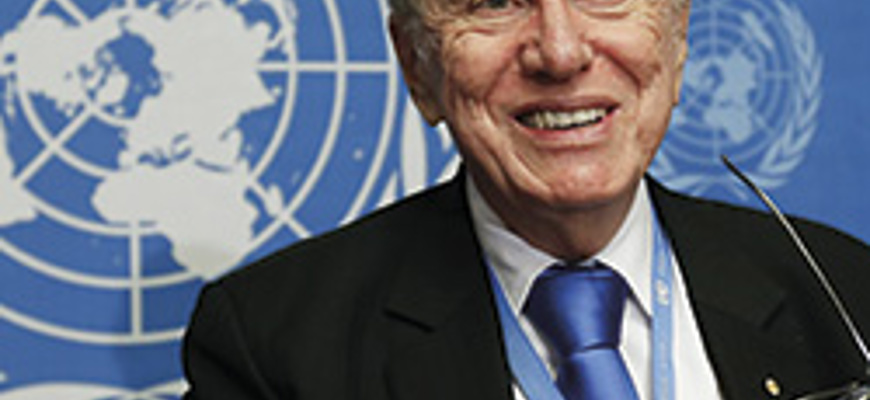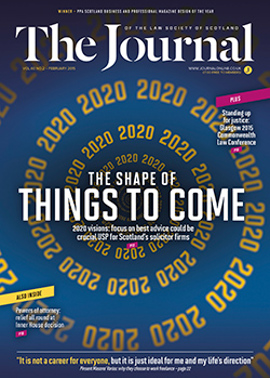Glasgow 2015: the three Rs

Human rights challenges and failures around the Commonwealth will come under scrutiny at a major international conference in Glasgow.
The 19th Commonwealth Law Conference – “Resources, Responsibilities and the Rule of Law” – takes place from 12-16 April at the Scottish Exhibition and Conference Centre. It marks the 800th anniversary of the Magna Carta, a symbol of the rule of law across the Commonwealth, and will highlight issues such as women’s rights, the criminalisation of homosexuality, child marriage, human trafficking and the influence of Sharia law on national law.
Returning to Scotland for the first time in almost four decades – it was last hosted in Edinburgh in 1977 – the conference is one of the most prestigious events in the international legal calendar. Lawyers and other legal professionals from more than 50 Commonwealth countries are expected to attend, with lawyers and legal experts exploring four key themes: corporate and commercial law; constitutionalism, human rights and the rule of law; the legal and judicial profession; and contemporary legal topics.
The conference will examine the role of a strong, independent judiciary and legal profession in enforcing clear, modern and effective laws that govern societies, commerce and the management of resources. It will also explore how ethical corporate behaviour and business practice can improve the lives of other communities around the world.
Gay people: end the persecution
Michael Kirby, a former Justice of the High Court of Australia who was recently appointed by the UN Human Rights Council to lead an enquiry into human rights abuses in North Korea, will give one of the keynote addresses and also speak on the issue of “homosexuality as a crime”.
It looks certain that he will deliver a forthright condemnation of the “unacceptable” lack of progress on the prohibition of discrimination on the ground of sexual orientation. Giving an indication of what delegates can expect from the event, he says: “The Commonwealth, members and secretariat have failed to act on the human rights imperative of getting rid of the inherited British colonial laws against gays, even though we have known since the 1940s, at the latest, that sexual orientation is not a chosen ‘lifestyle’ but an in-built, probably mainly genetic, characteristic of human beings that is not chosen and cannot be changed.
“It is outrageous that countries that were in the forefront of the struggle for independence and to end racial discrimination should now be leaders of the global oppression of their own citizens on the basis of their sexual orientation. More needs to be done to break the logjam that presently exists in the Commonwealth of Nations.
“Apart from a recent initiative in Mozambique, a new Commonwealth country of non-British colonial tradition where a new criminal code has omitted the so-called ‘unnatural crimes’, and an enlightened decision of the Delhi High Court in India, later reversed by the Supreme Court, there has been no progress. It is completely unacceptable. It is contrary to the spirit of the Commonwealth Charter. It has to be changed, and quickly.”
Kirby explains that the Eminent Persons Group (EPG) on the future of the Commonwealth of Nations – on which he served in 2010 and 2011 – made recommendations designed to refresh the Commonwealth. He continues: “One recommendation, the adoption of a Commonwealth Charter, was accepted, although the instrument did not include express reference to prohibition of discrimination on the ground of sexual orientation. But its language and spirit were addressed to universal human rights, and it is now accepted that sexual orientation is protected.
“The EPG recommended the appointment of a Commonwealth Commissioner to help ensure that the principles of the Charter were implemented. This proposal was ditched at the Perth Commonwealth Heads of Government Meeting in October 2011. At the conference in Glasgow, I will tell the story of how that happened and how, effectively, the proposal was torpedoed. Without a Commissioner, the Charter is basically a toothless tiger. This needs to be corrected. It also needs to be changed quickly.”
Challenging abuses
Other keynote speakers include Hina Jilani, a pioneering lawyer and pro-democracy campaigner, who will explain the challenges she has faced as a leading activist in Pakistan’s women’s rights movement and in her international work to empower and protect defenders of human rights. She is a member of The Elders – an independent group of global leaders who were brought together by Nelson Mandela to work for peace and human rights – and was one of the founding members of the Human Rights Commission of Pakistan, a vital body for monitoring human rights. Although her work has made her a target of hostile propaganda, arrests, threats and abuse, she continues to live in Lahore and works tirelessly to mobilise civil society and promote human rights.
Dame Silvia Cartwright, a former Governor General of New Zealand who was recently appointed by the UN Human Rights Council to investigate alleged war crimes and human rights abuses in Sri Lanka, will also give a keynote address, as will Scotland’s Lord President. Lord Gill will examine the relationship between the independence of the judiciary, the independence of the legal profession and safeguarding the rule of law.
Law on the edge
Glasgow lawyer and former Society President Austin Lafferty will host the plenary events in the main hall. In his experience, the conference allows delegates to learn about “law on the edge”.
“Attending the conference in Cape Town, South Africa, as part of the Society’s delegation in 2013 was a revelation,” he says. “Although, as you would expect, there were opportunities to network and socialise with new and interesting lawyers from other countries, it was the business sessions, seminars, lectures and discussions that were unlike any conference I had ever been to before.”
He explains: “We heard about female genital mutilation in several African Commonwealth countries, and the efforts to use the law to hold it back. We were told first-hand of the experiences of lawyers in Sri Lanka, suffering government corruption and being beaten in the street for demonstrating in favour of the rule of law.
“We saw a video of the shooting by police in South Africa itself of striking miners, as we were lectured on the efforts being made by union lawyers to get the truth of the Marikana massacre, which led to the deaths of 44 people following strike action at the mine. And lots more. One legal delegate was refused permission to leave Zimbabwe to come and address us on that country’s judicial ills, and her speech had to be read out on her behalf.
“We think of ourselves as working hard for clients and for the interests of justice. But I had the privilege of learning about law on the edge, as legal professionals in various parts of the world battled – literally in many cases – to uphold or hang on to some semblance of law and order.
“Meeting and interacting with so many lawyers from around the world provides a valuable, positive opportunity to compare practice – whether it be in legal aid, judicial process, alternative dispute resolution, commercial practice or environmental law – with partners in Canada, New Zealand, Nigeria, Tanzania, Guyana. Although we are proud of the Scottish legal system, there is always something to learn.”
Showcasing Scotland
Mark Stephens, President of the Commonwealth Lawyers Association, agrees. He promises that the innovative programme of events will allow delegates to “conduct business, meet colleagues from different jurisdictions, exchange experiences, renew and build friendships that will continue long after the closing ceremony”.
Stressing that the conference will provide an excellent opportunity to showcase Glasgow, Scotland and the Scottish legal profession, Society President Alistair Morris says he is thrilled to welcome so many colleagues from around the world.
He adds: “We are delighted to demonstrate how our modern and flexible devolved legislature seeks to address the social, economic and legal challenges of our time. The conference programme promises to be engaging and thought-provoking – I would urge Scottish solicitors to take advantage of Glasgow hosting a major international conference on their doorstep.”
In this issue
- Supreme Courts: the US and UK compared
- Taking farmers to market
- Queuing up for Street Law
- Cash for your body
- Ivor Guild: an appreciation
- Reading for pleasure
- Journal magazine index 2014
- Opinion: Waqqas Ashraf
- Book reviews
- Profile
- President's column
- More benefits from development plan approval
- People on the move
- On track for 1 April
- In five years' time...
- Glasgow 2015: the three Rs
- Powers of attorney: the Inner House decides
- Freelancing goes mainstream
- Socially acceptable?
- Searching questions
- Separation and the stored embryo
- Effect, not cause: is obesity a disability?
- Goodbye to the Lamborghini?
- Scottish Solicitors Discipline Tribunal
- The dispute resolvers
- Take care with Lender Exchange
- Law reform roundup
- From the Brussels office
- Equal pay: a professional imperative
- Are you a cyber risk?
- Ask Ash
- Property in the spotlight
- Sweet smell of added value
- Legally IT: the evolving lawyer






